Delivering Out-of-Home Care (OOHC) is one of the most complex responsibilities in human services. Each day, providers must balance trauma-informed practice, compliance with sector requirements, carer recruitment and support, placement matching, incident response, permanency planning, and the realities of court proceedings. On top of that, every program and site must maintain accurate, regulator-ready records that withstand scrutiny.
When you consider the range of demands – restoration, reunification, guardianship, open adoption, and long-term care – it becomes clear why generic software tools simply cannot meet the needs of OOHC organisations.
This is where CTARS stands apart. CTARS is a purpose-built client and case management system designed specifically for the Australian OOHC environment. It has been shaped in collaboration with clinicians, caseworkers, and sector leaders so that the features most critical to OOHC practice are at its core – not bolted on as an afterthought.
If your agency is searching for OOHC software, foster care management software, or a modern case management system that truly understands Australian practice, CTARS delivers.
Built for OOHC Practice, Not Bent to Fit
Most platforms marketed to the care sector start life as generic CRMs. Over time, they’re “adapted” for human services, but that adaptation often leaves gaps that frontline teams quickly notice. CTARS is different. From day one, it was designed with OOHC workflows in mind.
With CTARS, providers benefit from:
- One source of truth – Every child, young person, and carer record is stored securely in a cloud-based system accessible across programs and sites.
- Configuration-first design – Forms, workflows, approvals, and role-based permissions can be tailored to your organisation’s practice standards and terminology.
- Scalability – From small agencies to multi-state providers, CTARS adapts as your programs evolve, and new services are introduced.
This combination ensures CTARS works with you, not against you, and grows as your organisation does.
Covering the OOHC Workflow End-to-End
OOHC is rarely a straight line. The journey for children and young people can move through multiple pathways – preservation, placement, restoration, guardianship, open adoption, or transition to independence. CTARS maps to that entire journey, ensuring consistency, accountability, and transparency.
1. Referral, Intake, and Risk Triage
When a referral is received, CTARS captures all critical details from the outset. Information, risk assessments, and urgency triage can be recorded consistently.
Mandatory fields ensure nothing essential is missed, while approval steps maintain governance. This structured intake process lays the foundation for safe placements and reliable case planning.
Keywords: intake, risk assessment, trauma-informed care, compliance
2. Permanency Planning and Casework
Permanency is the cornerstone of OOHC practice. Whether a child’s pathway is toward restoration and reunification, guardianship, adoption, or long-term care, CTARS supports evidence-based decision-making.
Case plans in CTARS clearly document goals, tasks, reviews, and the rationale for every decision. This creates a traceable permanency record that is transparent and ready for review.
3. Carer Management (Recruit → Authorise → Review)
Carers are central to OOHC, and their management must be comprehensive. CTARS supports the full lifecycle, including:
- Enquiries and applications
- Probity and clearance checks
- Household composition details
- Training records and renewals
- Supervision and carer reviews
By tracking these requirements in one place, providers avoid lapses that could compromise placement stability or care quality.
4. Incidents, Hazards, and Behaviour of Concern
Incidents must be recorded, escalated, and closed out in line with strict timeframes. CTARS allows configurable incident types, severity levels, escalation pathways, and corrective actions.
Staff log the event once, leaders track progress, and compliance teams can generate reports within minutes. Incidents can also be linked to behaviour support plans and staff debriefs, closing the loop on organisational learning.
5. Health, Education, and Therapeutic Supports
Holistic care requires accurate records of health and education alongside therapeutic supports. CTARS centralises:
- Health plans and medical consents
- Referrals to allied health or specialist services
- Education plans and schooling records
- Therapeutic interventions and progress tracking
This ensures timely follow-ups, transparent reviews, and coordinated care planning.
6. Family Time and Contact
Family time is critical to restoration and reunification. CTARS provides tools to schedule, record, and review family contact, capturing logistics, safety considerations, and observed outcomes.
By keeping this evidence centralised, caseworkers can demonstrate progress and ensure decisions are informed by accurate, transparent records.
7. Court, Orders, and Case Management
Court work is a significant demand on OOHC services. CTARS manages court matters, orders, hearing dates, and document packs. Staff can prepare consistent bundles and show the pathway decisions that led to each outcome.
This helps caseworkers, managers, and legal representatives stay aligned while maintaining quality casework practice.
8. Leaving Care and After-Care
Transitioning to adulthood requires structured planning. With CTARS, caseworkers create leaving-care plans that include referrals for housing, education, and employment, as well as scheduled follow-ups at 3, 6, and 12 months.
These records help agencies track outcomes and provide evidence that young people remain supported beyond statutory care.
Reporting That Drives Action
Data is only valuable when it supports decision-making. CTARS generates reports that align directly with frontline practice. Managers and executives can access insights such as:
- Incident timeliness and outstanding actions
- Carer compliance status
- Placement stability metrics
- Case review schedules
- Court workload and upcoming dates
- Progress against case plan goals
Reports are evidence-based, regulator-ready, and consistent with what staff record in the system. This ensures providers are prepared for internal and external reviews year-round.
Your Ecosystem, Connected
CTARS fits within a broader organisational ecosystem. Through secure APIs, the system integrates with:
- Finance and billing systems for invoicing and reconciliation
- Identity and access systems (SSO) for secure authentication
- Third-party tools for payroll, workforce scheduling, and document management
This connected approach ensures CTARS remains the authoritative OOHC client record while reducing duplication of effort across the organisation.
Security, Privacy, and Australian Data Sovereignty
OOHC records are among the most sensitive in human services. CTARS is built to protect that information. Security features include:
- Encryption at rest and in transit
- Role-based access controls
- Comprehensive audit logs for “who, what, when”
- High availability and disaster recovery provisions
- Australian-hosted infrastructure that upholds sovereignty and complies with privacy principles
This design gives providers confidence that data is protected while meeting both organisational and sector requirements.
Implementation With Industry Experts
Unlike systems that rely heavily on custom code, CTARS is configuration-first. This means implementation is faster, smoother, and focused on aligning with your practice.
A typical implementation can include:
- Discovery and design – mapping workflows, roles, and reporting needs
- Configuration – building forms, approvals, and permissions
- Integrations – connecting finance, identity, and external tools
- Client Profile Minimum Data set migration – cleansing, trial-loading, and validating records
- Training and change management – preparing teams with practical guides and champions
- Go-live – Transfer to CTARS Membership.
The result is a fit-for-purpose OOHC system that staff can trust from day one.
The Benefits Across Programs
CTARS delivers measurable benefits to OOHC providers, including:
- Consistent practice across multiple sites and programs
- Faster incident response and clear escalation pathways
- Stronger carer compliance with fewer lapses in probity or training
- Improved placement stability through proactive insights
- Less administrative overhead and more focus on children and families
- Confidence in reviews thanks to traceable, transparent records
Whether you operate a single foster care program or a large multi-service agency, CTARS supports scale without compromise.
Why CTARS, Not a Generic Tool?
- Purpose-built for OOHC – from permanency planning to placement matching, CTARS includes the features providers rely on daily.
- Configurable – adapt forms and workflows as policy and practice evolve.
- Decision-ready data – reporting that both staff and executives can trust.
- No size limits – works for small providers and large, multi-state organisations alike.
See CTARS in Action
If your agency is evaluating Out-of-Home Care software – for foster care, kinship care, residential, or restoration – CTARS provides the end-to-end functionality needed to deliver safe, consistent, and person-centred practice.
With CTARS, you’ll gain:
- Carer management and approvals
- Placement matching and stability insights
- Permanency planning records
- Incident reporting and review-ready reports
- Health, education, and family contact records
- Leaving care and after-care outcome tracking
Book a demo today to see how CTARS can streamline your OOHC workflows, reduce risk, and free your teams to focus on what matters most: ensuring children and young people are safe, supported, and on a clear path to permanency.








